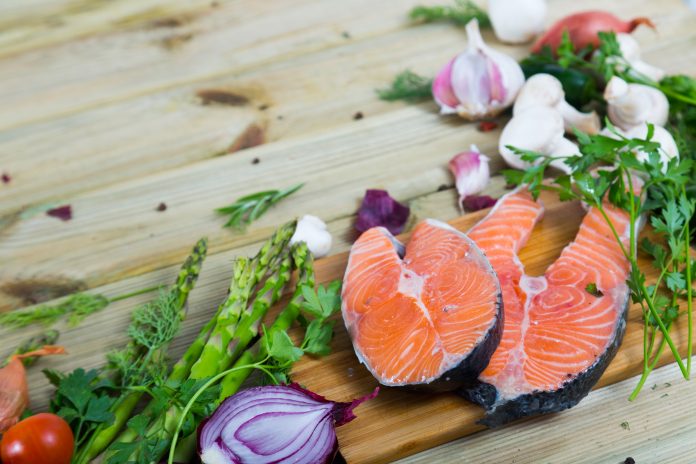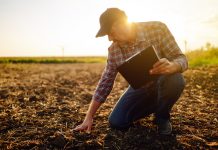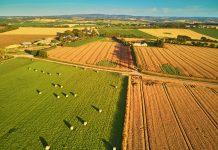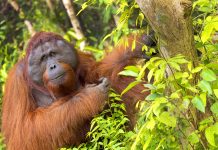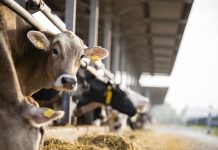A lot of thought is invested in modern and sustainable food production, but where should the sustainable workforce come from that will supply the skills of the climate-smart industry of the future? Bengt Fellbe, Program Leader, SSEC, Swedish Surplus Energy Collaboration, explores
Climate change that makes it difficult, or in the near future, impossible to grow and produce food (in fact already here and now in some parts of the world), together with technological development and digitisation that changes and challenges traditional production methods, is often up for discussion and investments when it comes to cultivation and food production of the future.
Development is progressing and that is good, but what usually gets lost in the context and does not get the attention it deserves is the question of who should work in our modern, sustainable and circular industry. A lot of thought is invested in sustainable power supply, resource management with water in closed, circular systems, production of new sustainable input products in feed production, etc. But where should the sustainable workforce come from that will supply the skills of the climate-smart industry of the future?
A modern and sustainable food production in the broadest sense needs the supply of skills at all levels of knowledge. These are research and development competence at a high academic level, process leaders and automation technicians with high competence, AI competence with the ability to analyse, evaluate and implement data in production, and last but not least a large number in production. Even today, the industry is struggling with major problems finding labour to salvage its harvest. In most cases, you are completely dependent on foreign labour as a seasonal worker.
Education and skills supply need to be on the agenda and all parties, public and private, need to work together. The industry as a whole also needs to make visible what it is doing today in order to reach new target groups who are interested in education and a career in the food industry.
Together with Folkuniversitetet, we started the Higher Vocational Education (HVE) “Sustainable food intra-preneur” in august.
Higher Vocational Education (HVE)
Higher Vocational Education (Yrkeshö-gskolan) is a post-secondary form of education that combines theoretical and practical studies in close cooperation with employers and industry. Programmes are offered in specific fields where there is an explicit demand for competence.
Thirty students from all over Sweden receive an education to be able to contribute to the development in the sustainable food industry. Leading and significant players in the industry are behind the training and are part of the Management Group. I am proud and happy that these far-sighted companies are getting involved.
The education is conducted online with a number of physical meetings and study visits. During the education, the students complete two longer internship periods. The first study visit will be in Bjuv municipality. There, students get the opportunity to get to know Foodhills, Charkprodukter, Magnihill and New Cold. We will later in the education visit Lerum municipality and the Tannery in Floda – a future education center and Campus for sustainable food. Of course, it is also our hope that we will have the opportunity to visit the municipality of Härnösand and make a study visit to Agtira and their aquaponic cultivation, as well as learn more about the region’s strategy for developing a sustainable food cluster.
ATRIA SWEDEN is part of Atria Group, which is one of the leading meat – and food companies in Northern Europe. The company is over 115 years old and Atria Plc’s shares have been listed on Nasdaq Helsinki Ltd since 1991. Atria Sweden provide the Swedish market with many well-known brands within retail, foodservice and concept. Atria main categories are sausages, cold cuts, marinated delicacies, sauces and meal solutions.
We have been producing food for humans for over a hundred years and we want to continue to do so in the future. That is why we work with respect for the planet, for the people and the food they eat.
We are the leading company in responsible food production in northern Europe. Over the years, we have shouldered our responsibilities and also solved major challenges. Due to climate change, our main goal today is a carbon-neutral food chain.
AGTIRA is a research and development company in the food tech sector, which delivers systems for sustainable food production to actors in the food industry. Through the use of intelligent aquaponics and artificial intelligence, we have redefined the concept of locally grown food. We are world leaders in the field of aqua-ponics, and we develop both cultivation methods and software support for the farming of fish and vegetables in urban environments.
One of the biggest challenges the world will be facing in the future is the production of food. Water scarcity and climate change are global problems that have a major impact on people and their lives. This calls for significant changes to the way food is produced in the future, and we are at the forefront of this development. With high technology and natural aquaponics, we have created an entirely new, closed-loop system for food production in drought-stricken areas. We can also enable cultivation in urban environments with limited space, for instance on rooftops. Our company is the first in the world to offer the cultivation of cucumbers in a supermarket, at Ica Maxi Birsta in Sundsvall.
LJUSGÅRDA – We provide Sweden with Swedish salad all year round. Just as the tractor once revolutionised agriculture, now comes the next technology shift – indoor cultivation. With the help of the development around indoor cultivation, Sweden can become a self-sufficient country that is not dependent on imports for most of the fruits and vegetables we consume. Ljusgårda wants to be part of driving that change.
Sweden imports over 70% of the fruits and vegetables we consume. These have often travelled a long way before they are packed and sent to our stores. During transport, they also lose a large part of their nutrition. Ljusgårda delivers to the store within 24 hours of harvest. This means that we can invest time and focus on growing good and nutritious crops. In our climate-certified indoor cultivation, our salad grows 365 days a year, so you can enjoy it whenever you want, with a clear conscience.
CHARKPRODUKTER AB currently manufactures and markets composite charcuterie. Our main groups are pie, hot smoked and cold smoked sausages and ham. The products are produced today at some of our two fine facilities located in Billesholm and in Malmö. Actually, it is only our machines and our ability to innovate that set the limits for what we can do.
The aim of our environmental work is that our impact on the environment should be as limited as possible. In concrete terms, this means that we continuously work to minimise our need for resources by investing smartly but also by being restrained with raw materials used in production.
The electricity we use today is origin-marked, which means that 100% of the electricity comes from renewable energy sources. Emissions of carbon dioxide are thus close to zero for the production of the electricity used in the manufacture of our products. If we can also manage our electricity at the same time as we invest in more energy-efficient machines, our footprint will be smaller per kilo produced. As of October 1, 2018, production in Billesholm and Malmö is completely fossil-free.
Swedish University of Agricultural Sciences – SLU among the world’s best universities
In international comparisons, SLU is assessed of a ‘very high quality’. In QS World University Rankings SLU is ranked as the third best university in the world in the fields of Agriculture & Forestry, and number 27 in the field of Veterinary Medicine.
SLU Future Food is a platform for research and collaboration to develop knowledge, solutions and innovations aimed at ensuring that the entire food system is characterised by economic, ecological and social sustainability to overcome tomorrow’s challenges. The research addresses both plants and animals, from the smallest molecules to global systems.
It is important to be restrained with resources, but investments in education and skills supply are not a resource we should be restrained with – on the contrary.

